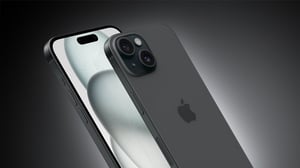Apple unveiled the iPhone 15 and iPhone 15 Pro in September 2023, signalling a turning point in their smartphone design and connectivity approach. Despite retaining their signature design aesthetic, changing to a USB-C port ended an 11-year run for the proprietary Lightning cable.
Some think that this change was long overdue. Others worry that Apple standardising product in this way is a slippery slope to commoditisation.
Introducing the USB Type-C port departed from Apple's traditional charging feature, receiving mixed consumer reviews. While no amount of enthusiasm from Apple fanatics or rival competition slowed down sales, the change was difficult to digest.
Competitor Accusations
Diversifying aspects of the core product is a delicate move. Apple is known for its seamless, integrated design philosophy that enables devices to 'speak the same language'. The shared device ecosystem has been a consumer favourite since Apple's introduction to technology markets.
The Type-C port stirred up discussions about Apple's innovation strategy and whether this would result in a loss of brand loyalty. Rival companies, notably Samsung, quickly claimed the tech giants were copying their approach. Samsung has been using USB Type-C ports in their flagship phones for years, and some saw the move by Apple as a business strategy to catch up with the competition.
Mixed Customer Reactions
Despite the change bringing faster data transfer speeds and compatibility with a broader range of devices, many long-time Apple users expressed mixed feelings about the shift.
Disrupting the seamless connectivity between Apple devices meant consumers needed to become familiar with new assets. Accessories designed for Apple's Lightning port became incompatible with the new iPhones, requiring dongles or new accessories to be bought. Has the time come for a universalised charging approach, or are we looking at a considerable brand risk?
Apple's move towards a USB Type-C port is undoubtedly a significant shift in their conventional approach to connectivity, which is an essential step forward for any tech company that hopes to remain relevant and innovative. For years, Apple has been known for its integrated ecosystem, where all aspects of technology seamlessly fit together. The Lightning port was a vital component of this ecosystem, and its removal in favour of USB Type-C represents a move towards a universal approach to connectivity.
Why did Apple change?
The EU has been at the forefront of advocating for more eco-friendly practices in the tech industry including pushing away from proprietary connectors, such as the much-talked-about Lightning port. The existing methods of using lightning cables have contributed significantly to electronic waste generation. As a result, an estimated 45 tons of e-waste from different charging cables are generated annually.
In 2022 the European Council, Commission and Parliament agreed on new legislation to reduce electronic waste in the EU. Consequently, by Q4 2024 all new smartphones, tablets, cameras and other electronic gadgets sold in the EU will need to have a USB-C charging port.
In 2022 Apple's European revenues totalled c. $95 billion, making the EU its second largest market after the Americas. So they had no choice but to comply.
Pros and Cons
Governments and manufacturers have agreed a single connector standard could mitigate e-waste. Are consumers looking for uniformity? There's a considerable disdain towards mobile phones requiring too many charging standards. While there are unquestionable advantages to USB-C, they're not entirely risk-proof. They are more likely to track, resulting in fire and cable mix-ups. However, single-standard charging has its benefits. For example, the USB-C connector is convenient and performs better than traditional cables. Its flip-to-both-side feature makes it easier to use than the one-fit charging approach on previous iPhones.
Furthermore, the increased availability of third-party charging accessories that support the Type-C USB standard can lead to cost savings for consumers. With more manufacturers offering compatible chargers and cables, competition drives down prices, making charging solutions more affordable. This cost-effectiveness aligns with Apple's efforts to make its products more accessible and affordable to a broader range of consumers.
How will buyers approach this change?
Consumers are essential to adopting a universal charging strategy since there's a high value placed on the practicality and convenience of using a single, standardised charger for numerous devices.
Removing the need for various chargers and cables streamlines the user experience and makes it easier for consumers to switch between different devices. Customers have more options and flexibility when using a universal charging solution like the Type-C USB connection when charging their devices. Customers may locate setting options more efficiently, even when travelling or in an emergency.
Blackbelt 360's Opinion
Blackbelt360 stands firmly behind innovation in the tech industry. Embracing changes and advances enable companies like Apple to stand out.
But we applaud any Big Tech company that is prepared to sacrifice brand identity for the sake of the environment. Apple's decision to transition to a Type-C USB port in the iPhone did just this - with a little nudge from the EU!
Our commitment to supporting innovation is rooted in our belief that progress leads to better, more efficient, and environmentally responsible technology.
Our sophisticated software marketing platform assists tech refurbishers, networks, carriers, and retailers to efficiently process and refurbish mobile and PC/Mac devices.
Regardless of the changes companies make to their device designs, Blackbelt 360’s software and services adapt accordingly. Our agile approach ensures compatibility with all major devices, making it easy for users to trade in or refurbish their phones and extend their life.
Our company understands the importance of preserving valuable data and maintaining the security of sensitive information. Whether transitioning to a new device or trading in your old one, our software ensures that personal and sensitive data is securely removed, protecting your privacy, and reducing the risk of data breaches.


COMMENTS